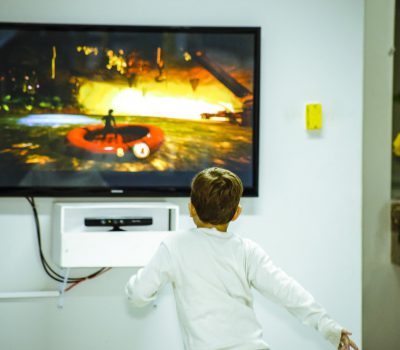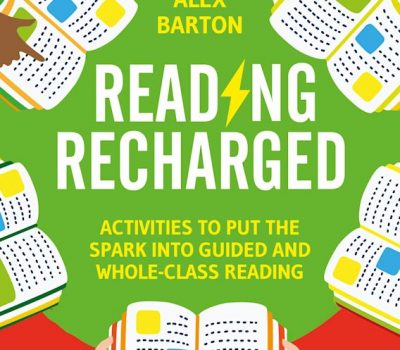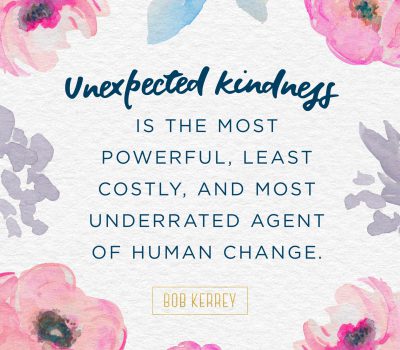


Our team sorts through all blog submissions to place them in the categories they fit the most - meaning it's never been simpler to gain advice and new knowledge for topics most important for you. This is why we have created this straight-forward guide to help you navigate our system.


And there you have it! Now your collection of blogs are catered to your chosen topics and are ready for you to explore. Plus, if you frequently return to the same categories you can bookmark your current URL and we will save your choices on return. Happy Reading!
Planning a piece of writing for pupils, no matter their age or ability can often be time consuming and difficult process, that very often, doesn’t tend to help make them any more ready to begin a piece writing or any more confident about crafting it effective beyond the opening – Andrew Jennings.
Let’s set the scene – After a few days of immersing the pupils in vivid language and dramatic role play, we set aside the planning day, where pupil ascend and decent mountains, produce timelines with various scaffolds or make copious amounts of detailed notes – more often than not – the words of the teacher in the plan ring louder than the students, as we try to support the pupils to develop an effective plan. The next day quickly arrives, D-Day. We all know that dreaded moment is about to arrive, where despite your best effort, the hands of ‘those’ pupils will slowly rise and be quickly accompanied by the enigmatic sounds of pupils stating “Sir..Miss…I don’t know how to start it, I don’t know what to write!?” And yes, this maybe verging on a little dramatic, but it’s a fairly common scene and sadly one that is most probably experienced by the lower attainers within classrooms across the country. What’s more ridiculous, is that despite experiencing this folly and frustration time after time, teachers are guilty of facilitating the same planning procedures and somehow expecting the outcome to be different to before.
Quite simply, for some pupils (especially lower attaining pupils, who tend to have social, emotional and other barriers to learning), such plans and planning processes are ineffective because it’s just too much information (that may be relatively new to them, in the form of a new text) for them to process and/or hold in their working memory and remember. Let alone write the text.
Why not try simplifying your whole planning process to a few well-chosen words, that are heavily embedded in those immersive and engaging dramatic, sketching, talk and sensory experiences that the pupils can refer and relate back to, underpinned by vocabulary – with the simple prompt of a single word. In doing so, you will save potentially a lesson every week or in every writing sequence from laborious and often pointless planning, which can be used to spend more time immersing the learners in the book, the landscape, the setting, or in the characters very own shoes and modelling how to develop aspects of the text effectively.
Using the simple vocabulary to plan, allows the pupils to cognitively focus on the task at hand without the mental overload that the traditional plan can create. Providing your pupils with the faculty to retrieve the familiar content of the book or stimulus, and still be able to focus on the developing and including the expected grammatical features of the text.
See the example below for Shackleton’s Journey. Ten well-chosen words which elicit memories, discussion, facts, opinions and much more from the text (in this case lots of meaning rich verbs). A simple and effective way to prompt and structure the writing process! Simple to prompt pupils’ knowledge and drive adult questioning.
• Stranded
• Ice-Pack
• Speech
• Mutiny
• Hunger
• Execution (dogs)
• Shelter
• Farewell
• Elephant Island
• Rescue

The author

Read more
Read more

Read more

Read more

Read more

Read more

Read more

Read more


Are you looking for solutions? Let us help fund them! Nexus Education is a community of over 11,000 schools that come together to share best practise, ideas and CPD via online channels and free to attend events. Nexus also offers funding to all school groups in the UK via nexus-education.com


Established in 2011, One Education is a company at the heart of the education world, supporting over 600 schools and academies. Our unique appeal as a provider is in the breadth and synergy of the services we offer, supporting school leaders, teachers and support staff to achieve the best possible outcomes for their pupils and staff.

School Space is a social enterprise that has empowered schools for over 12 years through their profitable and hassle-free lettings services. So far, they’ve generated over £5 million in revenue for education, helping to connect over 200 schools with their local communities.


Unify is an online sales and marketing tool that allows users to create tailored personalised documents in moments.


There’s nothing special about the energy we sell. In fact, it’s exactly the same energy as all our competitors provide. But there is something special about the way we do it. Where others complicate the process, we simplify it. Where others confuse customers with hidden terms, we’re an open book. And where others do all they can to make as much money from their customers as possible, we do all we can to make as little. Everything we do, we do it differently. Our customers are a privilege. One we’ll never take advantage of.


Securus provide market-leading monitoring solutions to safeguard students on ALL devices both online and offline. We also offer a full monitoring service, where we carry out the monitoring on behalf of the school, freeing up valuable staff resources. From the smallest school to large MAT groups, Securus offers safeguarding protection for all!


Bodet Time offers dedicated solutions to education through lockdown alerts, class change systems, PA and synchronised clock systems. Improving time efficiency of the working and school day; ensuring safety through lockdown alerts; increasing communication with customised broadcast alerts.


Robotical makes Marty the Robot - a walking, dancing coding robot that makes programming fun and engaging for learners as young as 5. Our robots come with a full Learning Platform that has complete teaching resources, to make lesson planning a breeze.
